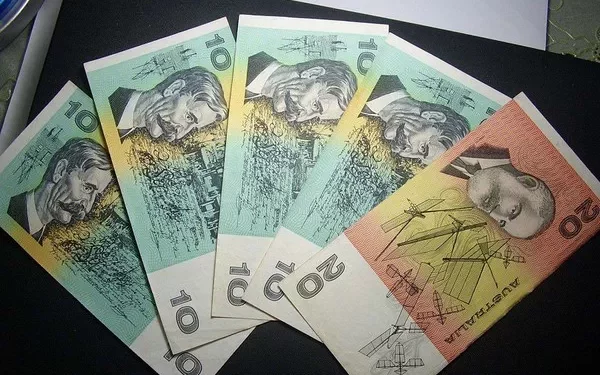Australia, a vast and culturally rich country, attracts millions of visitors each year. Whether for tourism, education, business, or migration, understanding the best currency to use in Australia is crucial for anyone planning to spend time there. This article will explore the intricacies of the Australian financial landscape, including the preferred currency, the stability and strength of the Australian dollar, the use of digital payment methods, and tips for managing money effectively while in Australia.
The Australian Dollar: The Preferred Currency
The official currency of Australia is the Australian Dollar, abbreviated as AUD and often represented with the symbol $. The Australian Dollar is the primary currency used for all transactions, and it’s important for visitors and new residents to understand its denominations and use.
Denominations and Usage
The Australian Dollar is subdivided into 100 cents, and the currency includes both coins and banknotes. The coin denominations are 5 cents, 10 cents, 20 cents, 50 cents, 1 dollar, and 2 dollars. The banknotes come in denominations of 5, 10, 20, 50, and 100 dollars. Each note is distinct in color and features prominent Australian figures and landmarks, aiding in easy identification.
In everyday transactions, the Australian Dollar is used ubiquitously. From grocery shopping and dining out to public transportation and entertainment, the AUD is accepted everywhere. For most travelers and residents, carrying a mix of small denominations in coins and notes is advisable for convenience in day-to-day spending.
The Strength and Stability of the Australian Dollar
Understanding the economic strength and stability of the AUD can help in making informed financial decisions while in Australia. The Australian Dollar is known for its resilience and is one of the most traded currencies in the world.
Economic Factors Influencing the AUD
Several factors contribute to the strength and stability of the Australian Dollar:
Commodity Exports: Australia is rich in natural resources, and commodities like coal, iron ore, and natural gas play a significant role in the economy. The export of these commodities influences the value of the AUD on the global market.
Interest Rates: The Reserve Bank of Australia (RBA) sets the official cash rate, which impacts the AUD’s value. Higher interest rates typically attract foreign investment, strengthening the currency.
Political Stability: Australia’s stable political environment fosters investor confidence, contributing to a stable currency.
Economic Performance: Strong economic performance, including low unemployment rates and healthy GDP growth, supports the AUD’s value.
Historical Performance
Historically, the AUD has shown considerable strength, particularly due to its ties to the commodity market. During periods of high demand for commodities, the AUD tends to appreciate. However, the currency can also be volatile, responding to global economic shifts and changes in commodity prices.
Exchange Rates
For visitors from other countries, understanding exchange rates is crucial. The exchange rate between the AUD and other currencies can fluctuate, affecting the purchasing power of foreign currency in Australia. It’s advisable to monitor exchange rates and convert currency at optimal times to maximize value.
Digital Payment Methods in Australia
As a technologically advanced nation, Australia has embraced digital payment methods, which offer convenience and security. Understanding these options can enhance your financial experience while in the country.
Credit and Debit Cards
Credit and debit cards are widely accepted in Australia, and most establishments, from large retailers to small cafes, accept card payments. Visa, MasterCard, and American Express are the most commonly used cards. Contactless payments, often referred to as “tap and go,” are particularly popular and widely supported.
Mobile Payment Solutions
Mobile payment solutions like Apple Pay, Google Pay, and Samsung Pay have gained traction in Australia. These digital wallets allow users to make payments using their smartphones or smartwatches, providing a convenient and secure alternative to traditional cards.
Online Banking and Transfers
Online banking is a standard feature offered by all major Australian banks. Services include transferring funds, paying bills, and managing accounts through secure online platforms. Services like BPAY and PayID facilitate easy and instant payments between accounts.
E-commerce and Digital Transactions
Australia has a robust e-commerce sector, and digital transactions are commonplace. Whether shopping online or paying for services, using digital payment methods is both safe and efficient. Secure payment gateways and stringent regulations ensure the protection of users’ financial information.
Managing Money in Australia: Tips for Visitors and New Residents
Effectively managing money in a new country can be challenging. Here are some tips to help visitors and new residents navigate the Australian financial landscape:
Currency Exchange
When exchanging currency, it’s essential to shop around for the best rates. Banks, currency exchange services, and even some hotels offer currency exchange, but the rates and fees can vary. Using ATMs to withdraw local currency can also be a cost-effective option, especially if your home bank has partnerships with Australian banks.
Opening a Bank Account
For those staying in Australia for an extended period, opening a local bank account is highly recommended. Major banks like Commonwealth Bank, Westpac, ANZ, and NAB offer accounts tailored for international visitors and students. Having a local account facilitates easier management of finances, access to local banking services, and avoiding foreign transaction fees.
Budgeting
Australia can be an expensive country, particularly in major cities like Sydney and Melbourne. Creating a budget and sticking to it is crucial. Consider costs for accommodation, food, transportation, and entertainment. Many banks offer budgeting tools and apps to help manage expenses.
Avoiding High Fees
Be mindful of potential fees associated with foreign transactions, ATM withdrawals, and currency exchanges. Using a travel-friendly credit card with no foreign transaction fees or a multi-currency account can help reduce costs.
Utilizing Technology
Leverage technology to manage your finances efficiently. Use banking apps, expense tracking tools, and digital wallets to keep track of your spending and make payments conveniently.
Safety and Security
While Australia is generally safe, it’s important to practice good financial security. Protect your PINs, use secure internet connections for online banking, and be cautious of scams. The Australian government provides resources and tips for avoiding fraud and financial scams.
Understanding the Cost of Living
The cost of living in Australia varies significantly depending on the region. Major cities like Sydney, Melbourne, and Brisbane are more expensive than regional areas. Here’s a breakdown of typical expenses:
Accommodation
Accommodation costs can be high, particularly in major cities. Renting an apartment or house is common, and prices vary based on location and size. Sharing accommodation can be a cost-effective option for students and young professionals.
See Also: Will AUD Get Stronger in 2024?
Food and Groceries
Eating out can be expensive, but there are plenty of affordable options, especially in multicultural urban areas. Cooking at home is generally more economical, and supermarkets like Woolworths, Coles, and Aldi offer a wide range of products at competitive prices.
Transportation
Public transportation is efficient and widely used in cities. Options include buses, trains, trams, and ferries. Purchasing a travel card (such as Opal in Sydney or Myki in Melbourne) can provide discounts and convenience. For those who drive, fuel prices and parking fees should be factored into the budget.
Healthcare
Australia has a high standard of healthcare. Public healthcare is available to residents and certain visa holders through Medicare. Private health insurance is also available and can provide additional coverage and shorter waiting times for services.
Entertainment and Leisure
Australia offers a wide range of entertainment options, from cultural events and dining out to outdoor activities and sports. Budgeting for leisure activities is important to ensure a balanced lifestyle.
Financial Services and Support for International Visitors
Australia provides various financial services and support for international visitors, students, and new residents. These services are designed to help integrate into the financial system smoothly and efficiently.
Banking Services
Major banks offer specialized services for international visitors, including:
Student Accounts: Tailored for international students, these accounts often come with lower fees and additional benefits.
Multi-currency Accounts: These accounts allow users to hold multiple currencies, which can be beneficial for frequent travelers and expatriates.
Remittance Services: Many banks and financial institutions offer remittance services to transfer money internationally.
Financial Advisors
For those planning to stay long-term or invest in Australia, consulting a financial advisor can be beneficial. Advisors can provide guidance on tax regulations, investment opportunities, and retirement planning.
Government Resources
The Australian government provides resources and information to assist new arrivals. Websites like the Australian Securities and Investments Commission (ASIC) offer advice on managing money, avoiding scams, and understanding consumer rights.
Conclusion
Navigating the financial landscape of a new country can be challenging, but with the right information and preparation, it can also be manageable and even rewarding. The Australian Dollar is the primary currency used in Australia, and understanding its denominations, exchange rates, and economic factors can help you make informed financial decisions.
Embracing digital payment methods, effectively managing money, and understanding the cost of living are crucial for a smooth financial experience in Australia. By leveraging available financial services and resources, visitors and new residents can integrate into the Australian financial system seamlessly.
In summary, the best currency to use in Australia is undoubtedly the Australian Dollar. Familiarizing yourself with its use, staying informed about economic trends, and utilizing modern financial tools will ensure that you can manage your finances effectively while enjoying everything this vibrant and diverse country has to offer.
Related Topics:


























